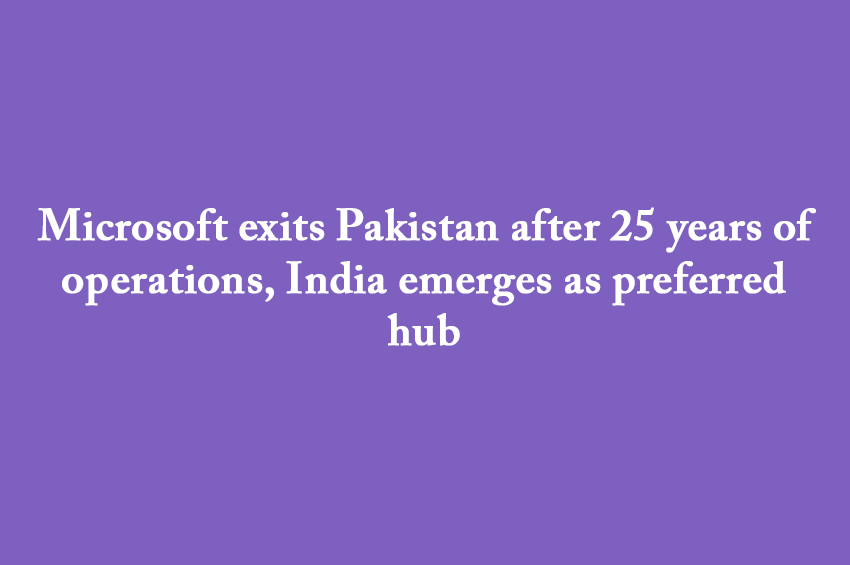Winning Bizness Desk
Mumbai. After 25 years of shaping Pakistan’s digital ecosystem, Microsoft has quietly shut down its operations in the country without any official announcement or public statement. The closure was confirmed on July 3, 2025, and though it was a quiet move, it reflects loud concerns over the worsening business environment in Pakistan. According to industry insiders, this decision was long in the making, driven by persistent economic troubles and growing political uncertainty.
Mounting challenges made operations unviable
Microsoft faced increasing operational difficulties in Pakistan, including restrictions on moving funds and importing essential equipment. These trade barriers made it difficult for the company to maintain basic business functions. Coupled with unpredictable regulations, the situation created an unfriendly climate for foreign firms. For Microsoft, the inability to ensure smooth financial transactions and logistics raised red flags that eventually pushed the company out.
Talent not the issue, trust deficit is
Despite Pakistan’s rich pool of tech professionals and growing demand for digital services, it was not enough to convince Microsoft to stay. The root of the problem was not manpower but the lack of a stable and trustworthy environment. Financial unpredictability, policy inconsistency, and the absence of investor confidence became major deterrents. This highlights a growing trust deficit that global companies find hard to ignore.
India gains as regional tech hub
While Pakistan is witnessing the exit of foreign firms, India continues to strengthen its position as a regional tech magnet. Stable governance, a robust IT infrastructure, and investor-friendly policies have made India more appealing. Microsoft had already chosen to expand its operations in Vietnam in 2022 instead of Pakistan, indicating a clear strategic shift. India’s proactive approach and reliability are winning the trust of global investors.
Strained Indo-Pak ties affect trade climate
Pakistan’s souring diplomatic ties with India have only made matters worse. Bilateral trade between the two countries plummeted from $3 billion in 2018 to $1.2 billion in 2024. Key imports now take longer and cost more due to rerouting through third countries. This added economic pressure has further discouraged international businesses. Microsoft’s exit serves as a warning sign of the country’s growing isolation from global trade and investment networks.
7 Key Pointers:
- Microsoft shut its Pakistan office on July 3, 2025, after 25 years.
- No formal announcement was made by the company.
- Economic instability and trade restrictions were key reasons for the exit.
- Lack of trust, not talent, drove Microsoft’s decision.
- India continues to attract global tech firms due to policy stability.
- Microsoft had already shifted focus to Vietnam in 2022.
- India-Pakistan trade has dropped sharply, adding pressure on Pakistan’s economy.


